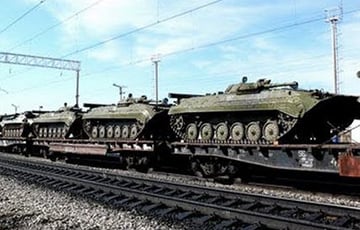Trainload Of North Korean Howitzers Arrives In Russia
13- 20.12.2024, 9:53
- 15,086

What does this mean and how will it affect the front?
Russian industry is not capable of fully covering the needs of the Russian Armed Forces for guns, barrels and shells of the required 170 mm caliber. In connection with these problems, the Kremlin turned to the DPRK for help and received the necessary artillery to continue the Russian-Ukrainian war. Forbes reported on the new problems that the Russians have encountered due to cooperation with North Korea.
The publication drew attention to the arrival of a trainload of North Korean Koksan M-1989 howitzers. This is the second trainload that has arrived in Russia in the last two months. Meanwhile, Russia entered the Russian-Ukrainian war with 2,000 tracked howitzers, but in the third year of fighting, 800 of them were destroyed. In addition, there was a shortage of new barrels, so another 100 guns were not working, although they survived. On the other hand, the Russian defence industry cannot cope with the production of new guns, while rusty installations are being sought out in Soviet-era warehouses and attempts are being made to restore them, the article explained. In this way, the DPRK is solving Russia's problems with artillery, the Forbes author concluded, but not everything is in order with this either — new problems have emerged.
What does the delivery of DPRK howitzers to the Russian Federation indicate and what are the consequences of this process:
M-1989 howitzers fire 170 mm shells, which is "an unusual caliber for Russians";
The DPRK will be the source of 170 mm shells for the Russian army — only this country has the corresponding factories;
North Korea also transferred shells of calibers familiar to Russians (122 and 152 mm) to the Russian Federation, and cooperation in this area indicates that the Russian military-industrial complex is not capable of producing the required number of weapons;
In exchange for the "Juche guns," the DPRK receives technology for manufacturing missiles and submarines, carriers of nuclear weapons.
"To put it cautiously, Russian forces are becoming dependent on North Korean weapons. Every M1989 that becomes Russian probably deepens Russia's dependence on North Korea," the Forbes author concluded.
At the same time, the publication highlighted the disparity in the technologies that the North Koreans and Russians exchange. If the DPRK receives nuclear technology, then the Russian Federation receives old guns.










